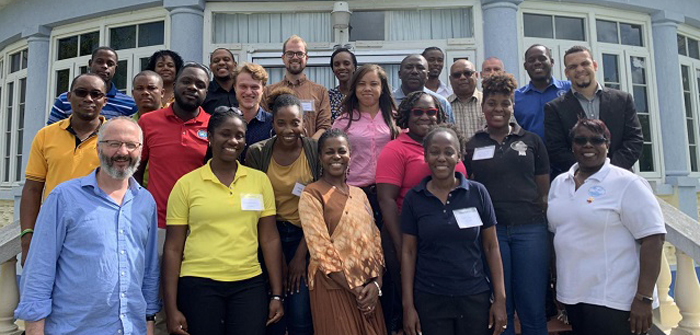Forecasters across the Caribbean are taking part in an international atmospheric and oceanic field campaign to understand trade wind clouds.
The campaign, entitled ‘Elucidating the Role of Cloud-Circulation Coupling in Climate’ (EUREC4A) is focusing on areas to the east and south of Barbados to improve understanding and predictions of regional and global weather and climate.
To improve climate predictions, the behavior of clouds needs to be understood, as they circulate heat in the atmosphere and reflect sunlight back to space.
The Caribbean Institute for Meteorology and Hydrology (CIMH) is a lead institution in EURECA, the first time that a Caribbean institution has taken a lead role in a major international meteorological field research.
The Caribbean Weather Forecasting Initiative was proposed by the UK’s University of Leeds and the Caribbean Meteorological Organization Headquarters Unit and organized in collaboration with the CIMH.
The EUREC4A-UK-CMO Forecasting Initiative is developing capacity within the CMO and neighboring Caribbean states.
It is supporting the World Meteorological Organization’s Severe Weather Forecast Programme in the eastern Caribbean through education and collaboration among regional forecasters to predict non-tropical cyclone severe weather.
The involvement of national weather forecast offices across the Caribbean will turn the field study into an improved regional early warning system for severe weather.
Dr Alan Blyth of the National Centre for Atmospheric Science at the University of Leeds, and principal investigator for EURECA-UK, said, “We found the forecasts to be extremely valuable because of the forecasters’ local knowledge and their skill in producing succinct forecasts especially with respect to the synoptic influences on cloud formation in the region.”
Dr Arlene Laing, coordinator director of CMO, said, “Many field projects have been based in the Caribbean, but EUREC4A is the first one in which forecasters from across the region have been actively engaged. Through EUREC4A, Caribbean forecasters have been interacting with well-known researchers, accessing the next generation of weather forecasting models, and expanding their scientific knowledge of the science of tropical clouds and their impact on climate.”



